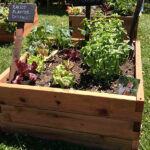For those dreaming of a simpler life, goat keeping for small homesteads offers a unique blend of sustainability and joy. As a key component of homesteading, goats provide milk, meat, and even companionship. In the initial stages of planning your homestead, it’s essential to consider the role of goats in your overall vision. Goats are not only a source of sustenance but also play a vital role in maintaining the ecological balance of your land.
Before delving into goat keeping for small homesteads, its important to understand the basics. This article will guide you through everything from choosing the right breed to setting up a sustainable habitat for your goats. By the end of this guide, you’ll be well-equipped to start your own goat-keeping journey.

Why Choose Goats for Your Homestead?
Goats are versatile animals that offer a range of benefits. They are relatively easy to care for and require less space than larger livestock, making them ideal for small homesteads. Additionally, goats are excellent foragers and can help clear brush and unwanted vegetation, contributing to land management.
Benefits of Goat Milk and Meat
One of the primary reasons homesteaders opt for goats is their ability to produce high-quality milk. Goat milk is nutritious, easier to digest than cow’s milk, and can be used to make cheese, yogurt, and soap. Moreover, goat meat is lean and rich in protein, providing a valuable food source for your family.
Sustainable Land Management
Goats help in maintaining the ecological balance by grazing on weeds and unwanted plants, thus reducing the need for artificial land management techniques. Their manure can also be used to enhance soil fertility, promoting a healthy garden ecosystem. Learn more about sustainable practices in home gardening.
Choosing the Right Goat Breed
Selecting the right breed is crucial for successful goat keeping. Different breeds serve different purposes, such as milk production, meat, or fiber. Consider your primary goal when choosing a breed. Popular options include Nubian, Saanen, and Boer goats.
Milk Production Breeds
Nubian goats are known for their rich, creamy milk, while Saanen goats are famous for their high milk yield. If milk production is your priority, these breeds are excellent choices.
Meat Production Breeds
Boer goats are renowned for their meat quality. They grow quickly and have a good feed conversion rate, making them a popular choice for meat production.
Setting Up Your Goat Habitat
The next step in goat keeping for small homesteads is creating a habitat that meets their needs. Goats require a safe, spacious, and comfortable environment to thrive. This includes proper fencing, shelter, and access to clean water.
Building a Goat Shelter
A sturdy shelter protects goats from harsh weather conditions. It should be spacious enough to accommodate all your goats comfortably. Ensure proper ventilation to prevent respiratory issues.
Fencing and Security
Goats are curious creatures and excellent climbers. Your fencing should be strong and high enough to keep them contained. Regularly inspect the fences for any signs of wear and tear.
Nutritional Needs of Goats
Proper nutrition is vital for healthy goats. Their diet should include a balance of pasture, hay, grains, and minerals. Understanding their dietary needs helps in maintaining their health and productivity.
Pasture and Grazing
Goats are natural grazers and should have access to pasture. Grazing provides them with essential nutrients and helps in preventing boredom.
Supplementary Feeding
In addition to pasture, goats may require supplementary feed, especially during times of scarcity. Grains and mineral supplements ensure they receive a well-rounded diet.
Health and Wellness
Regular health checks and vaccinations are crucial in goat keeping for small homesteads. Familiarize yourself with common goat illnesses and their symptoms. Early detection and treatment are key to preventing serious health issues.
Common Health Issues
Goats are generally hardy animals, but they are susceptible to certain diseases such as pneumonia, parasites, and foot rot. Regular veterinary check-ups and proper hygiene can prevent these issues.
Vaccinations and Parasite Control
Ensure your goats are up-to-date on vaccinations. Implement a regular deworming schedule to protect them from parasites.
Breeding and Reproduction
If you plan to breed goats, understanding their reproductive cycle is essential. Proper breeding practices ensure healthy offspring and contribute to the sustainability of your herd.
Breeding Schedule
Goats typically have a breeding season in the fall. Plan your breeding schedule to coincide with this natural cycle for optimal results.
Care of Pregnant Goats
Pregnant goats require special care, including a nutritious diet and a stress-free environment. Regular veterinary check-ups ensure the health of both the doe and her kids.
Integrating Goats with Other Livestock
Goats can coexist with other livestock, such as chickens and sheep. They are generally social animals and can benefit from the company of other farm animals. Learn how to care for chickens alongside your goats.
Creating a Harmonious Environment
Ensure that all animals have enough space and resources. Monitor their interactions to prevent bullying or aggressive behavior.
Legal Considerations
Before starting your goat-keeping journey, check local regulations regarding livestock. Some areas have restrictions on the number and type of animals you can keep.
Permits and Licensing
Research any necessary permits or licenses required to keep goats in your area. Compliance with local laws ensures a smooth and hassle-free experience.
Learning and Resources
Continuously educate yourself on goat keeping through books, online resources, and community workshops. Building a network with other homesteaders can provide valuable insights and support.
For more detailed guidance on starting a homestead, check out this comprehensive guide on homesteading.
Conclusion
Goat keeping for small homesteads is a rewarding endeavor that offers numerous benefits. With the right knowledge and resources, you can successfully manage a goat herd that enhances your homestead’s sustainability. As you embark on this journey, remember to enjoy the process and learn from each experience.

Frequently Asked Questions
What is the best goat breed for milk production?
Nubian and Saanen goats are highly recommended for their excellent milk production capabilities.
How much space do goats need?
Each goat requires approximately 250-300 square feet of outdoor space for grazing and exercise.
Are goats good for clearing land?
Yes, goats are effective at clearing brush and unwanted vegetation, making them ideal for land management on small homesteads.






